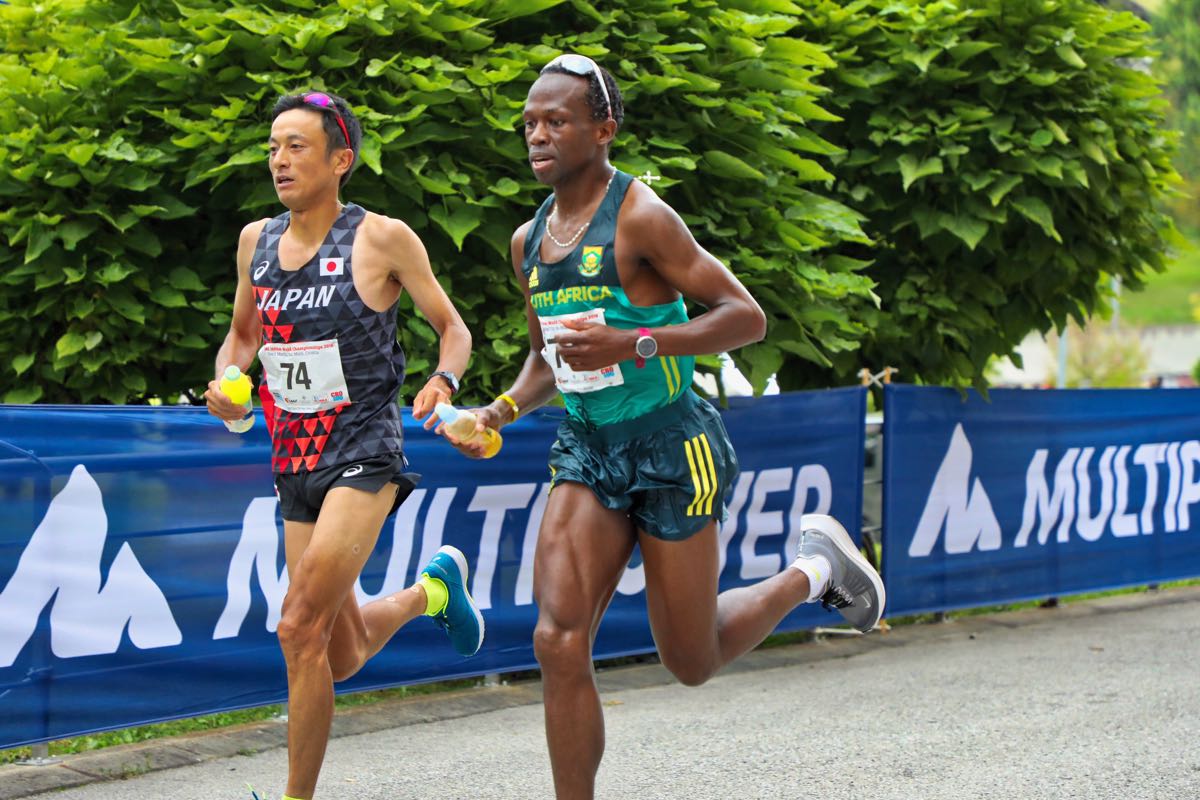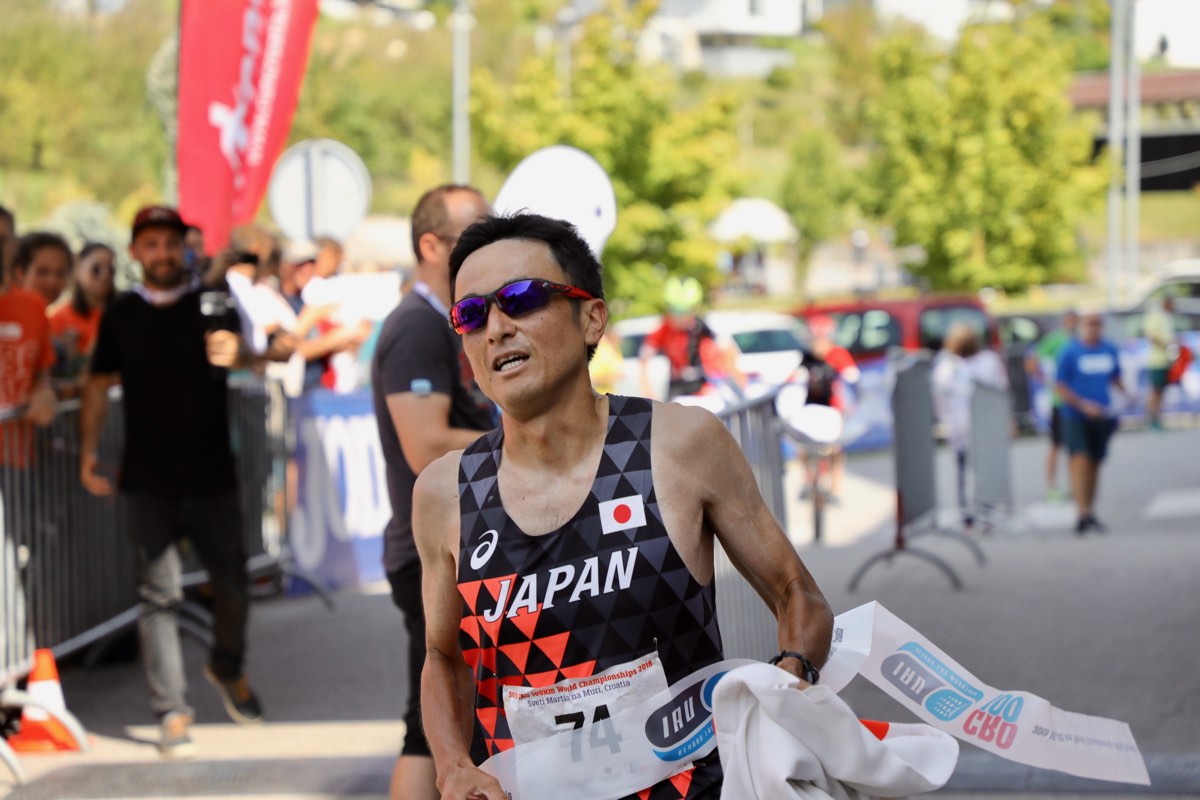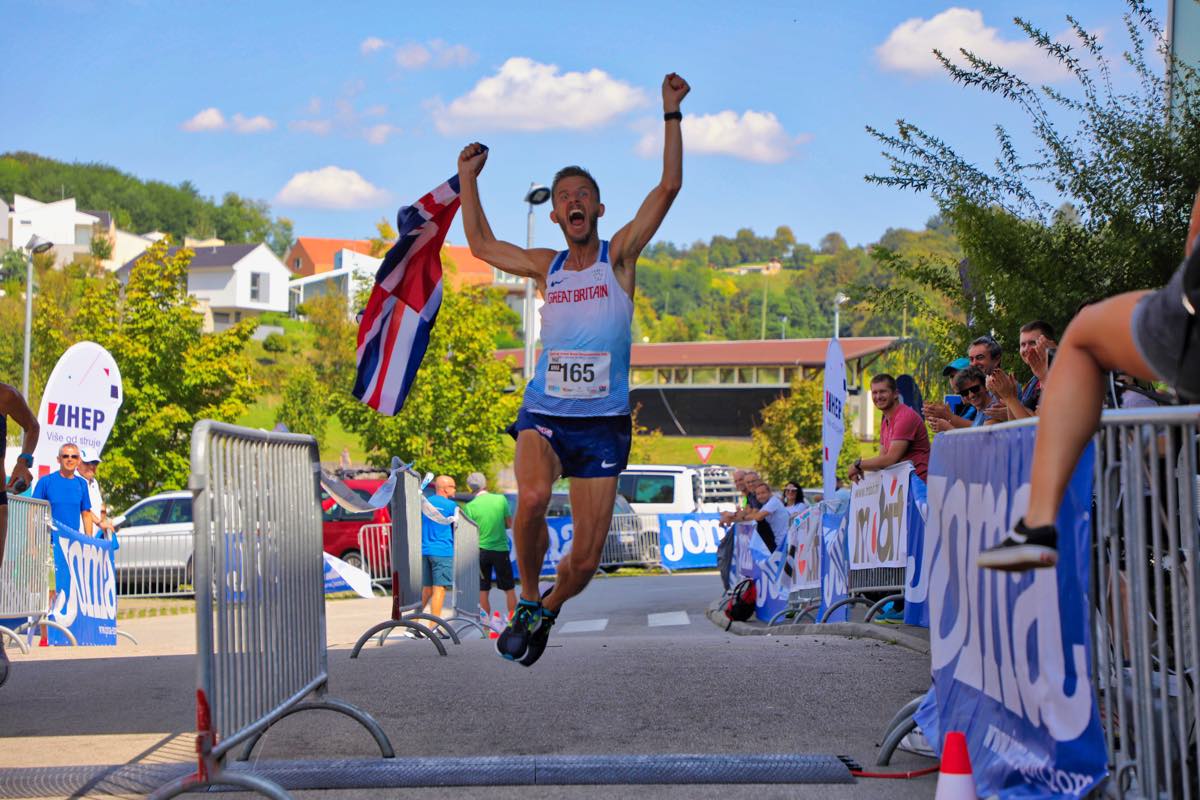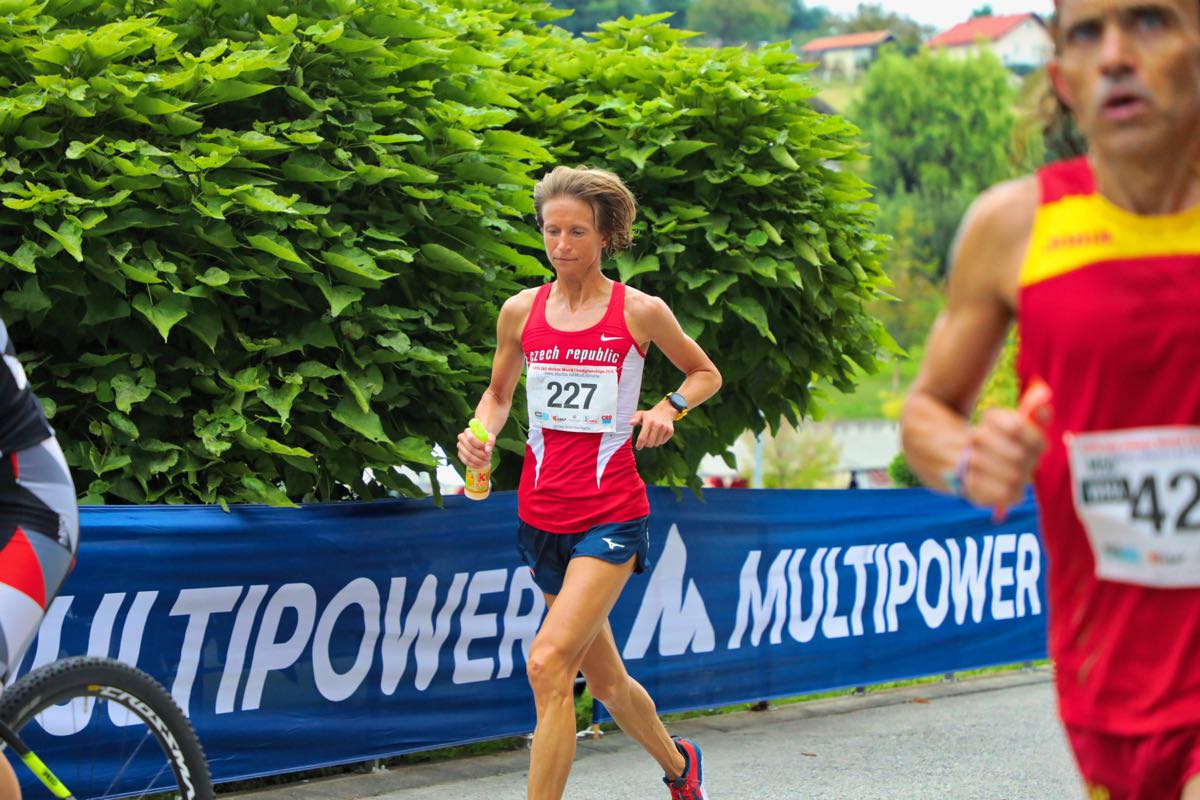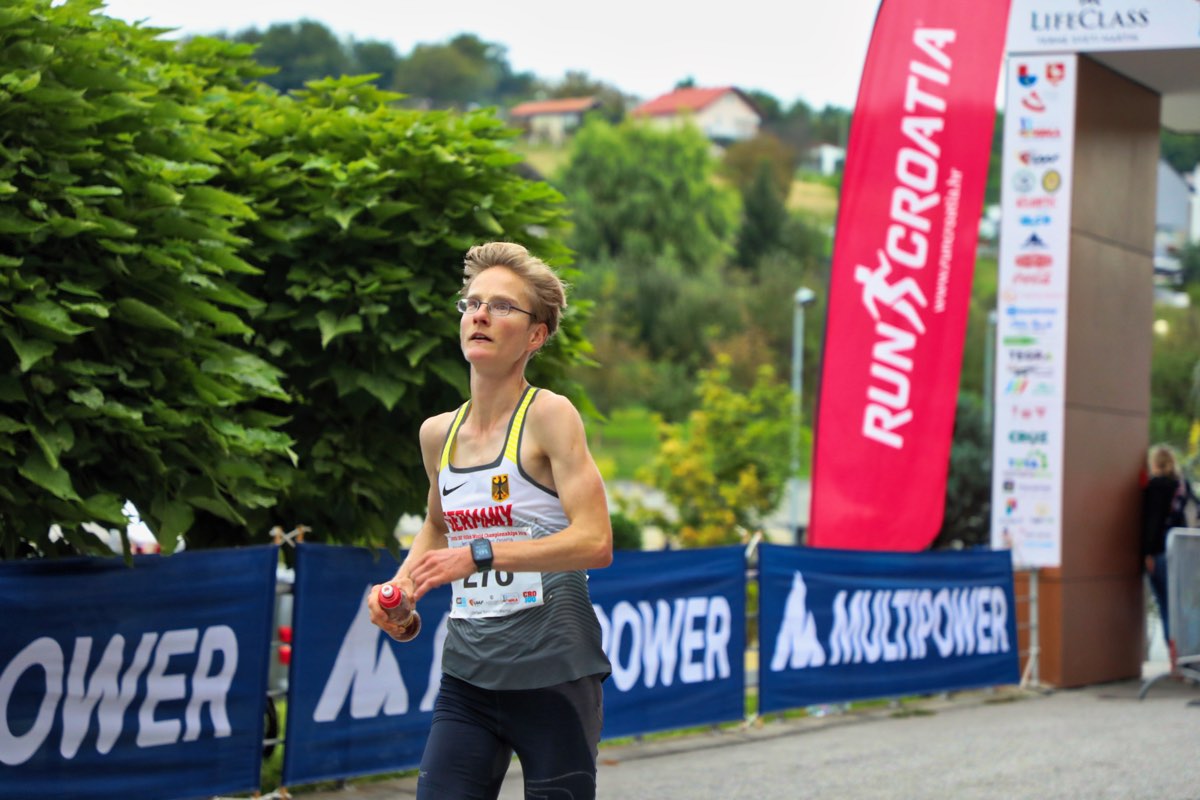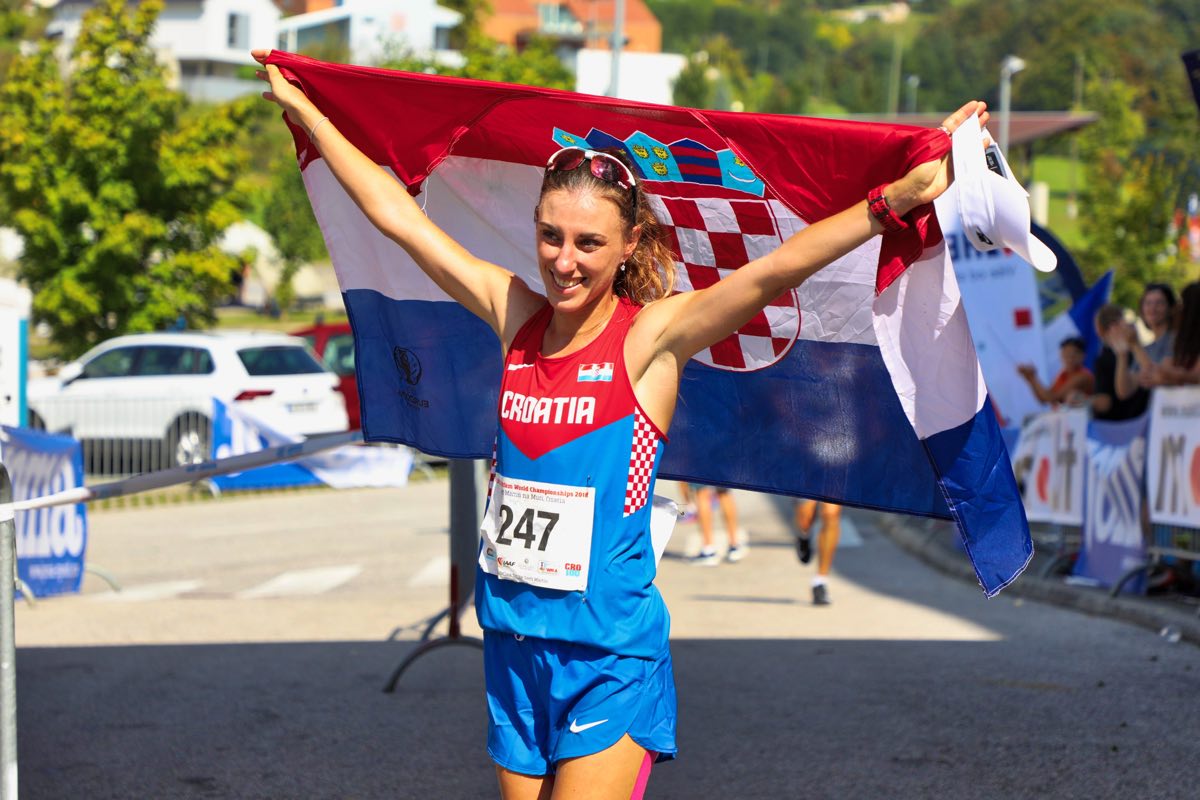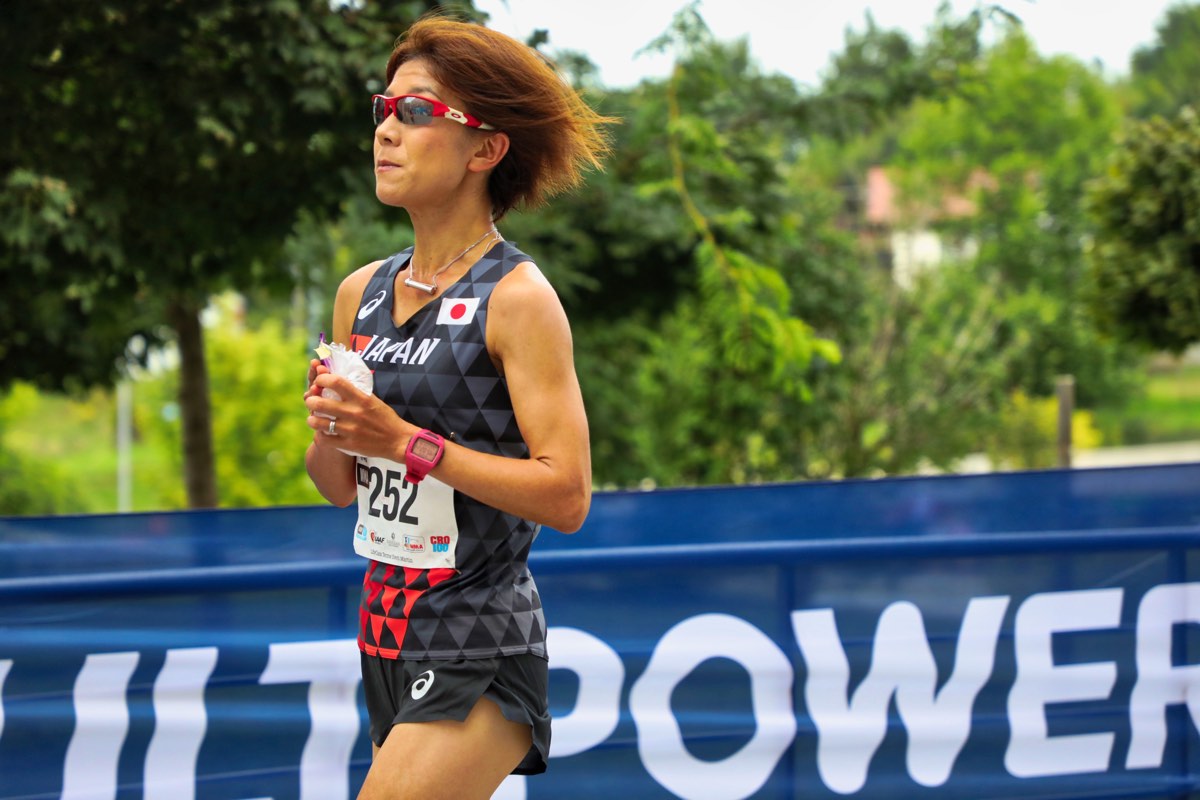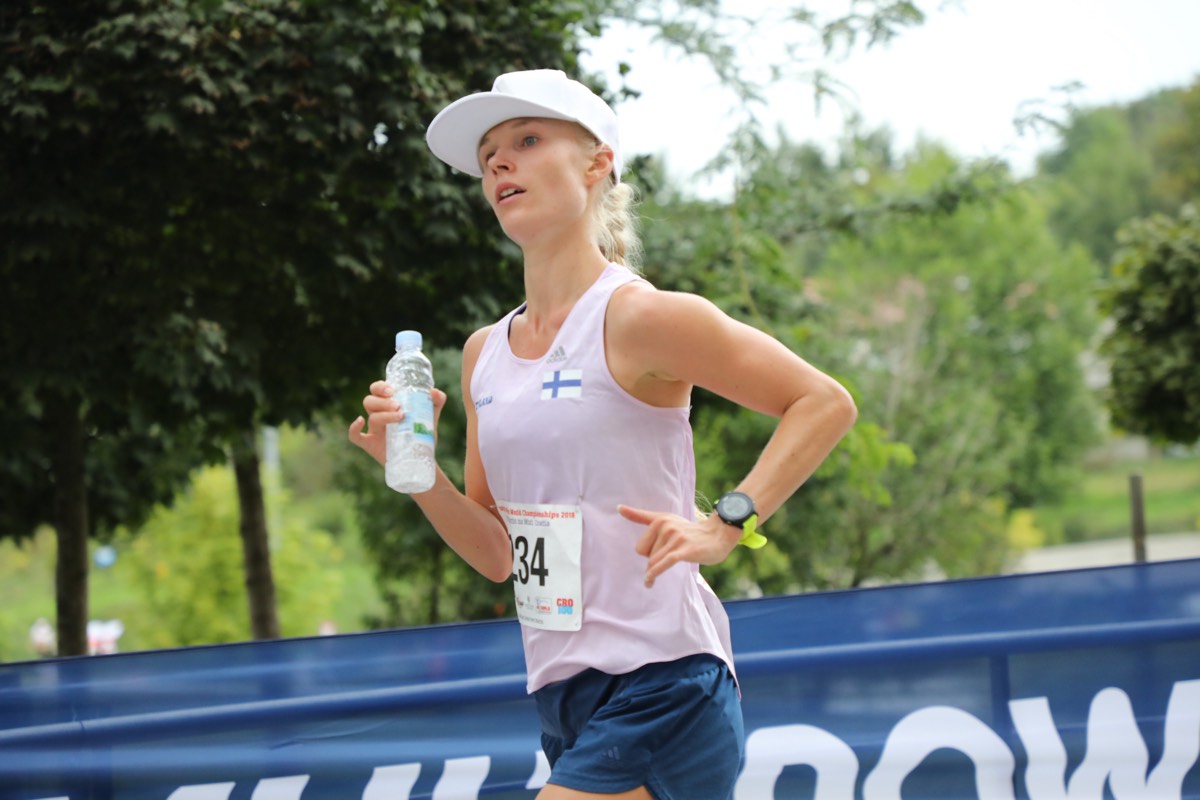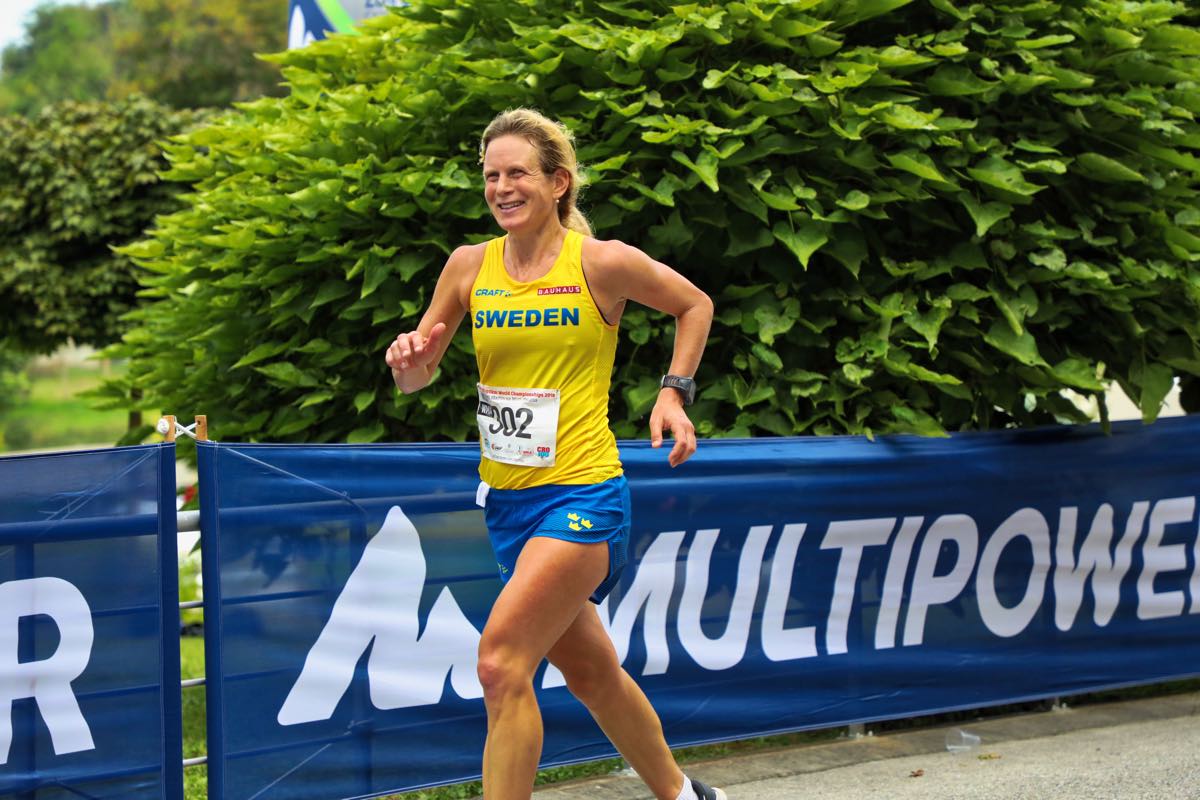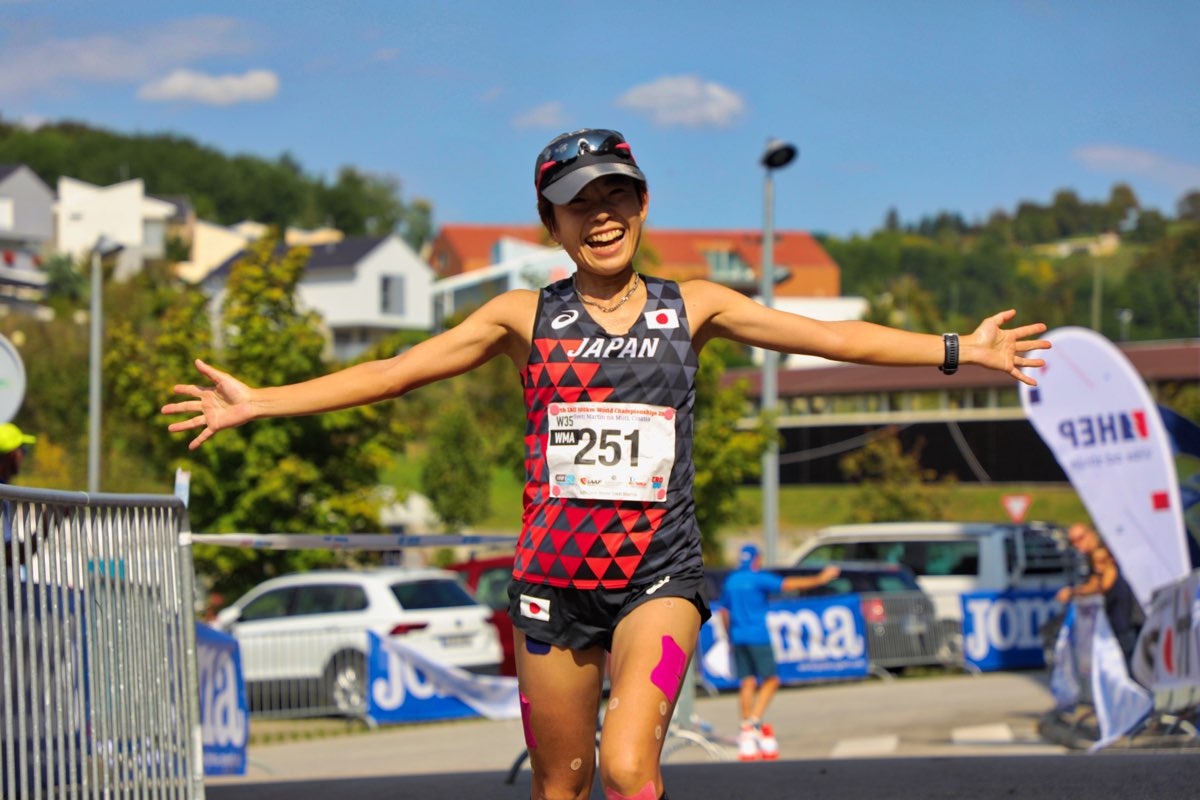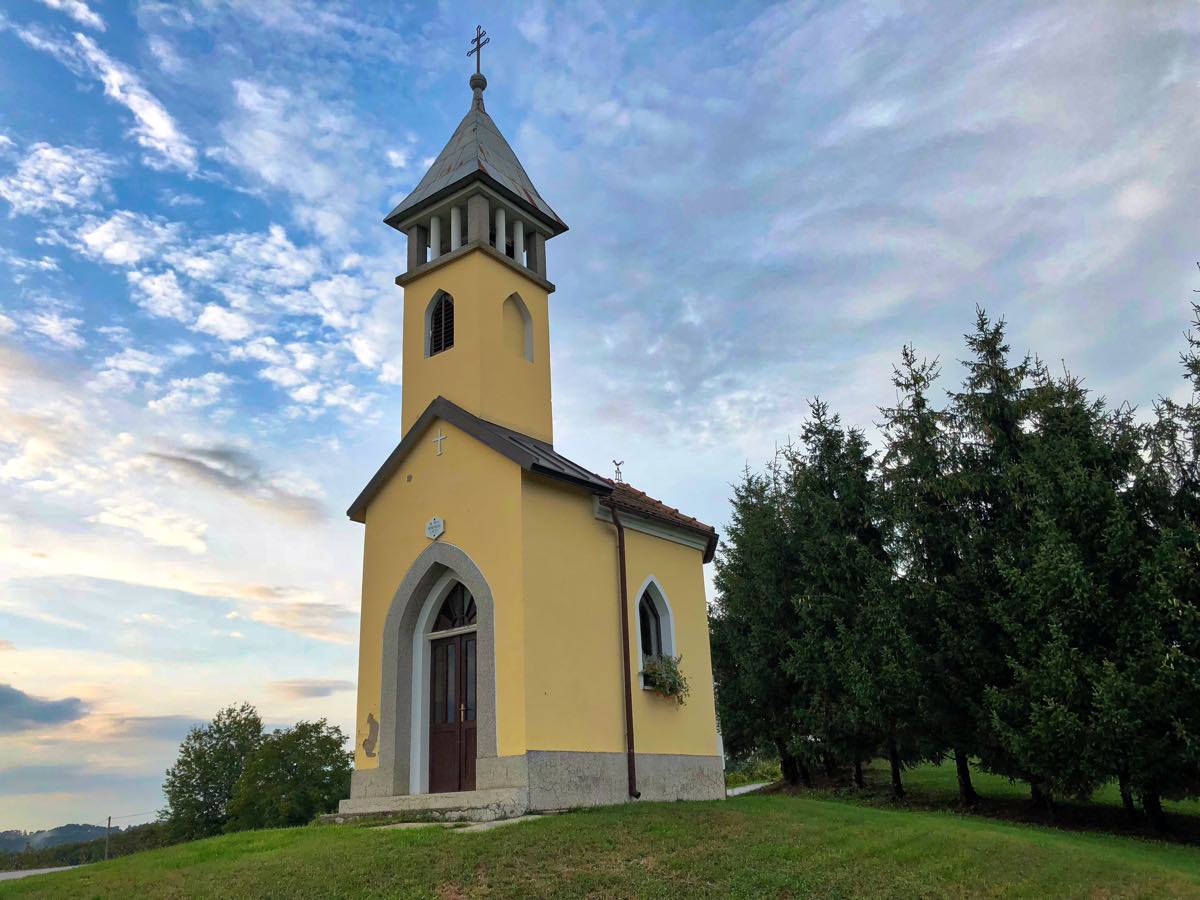With a latest-race surge, Japan’s Hideaki Yamauchi won the 2018 IAU 100k World Championships men’s race to become a two-time 100k world champion. In the women’s race, Croatia’s Nikolina Šustić won via early race conservation and then emerging as the leader after halfway, bettering her runner-up performance at the event’s previous edition.
In the men’s team race, Japan was absolutely dominant, taking home the gold medal with their first, second, and fourth-place finishes. Japan’s women were equally dominant in the women’s team race, taking home gold via their team members finishing in third, fourth, and fifth. Both the men’s and women’s Japanese teams had four total finishers in the top 10.
The picturesque northern Croatian town of Sveti Martin na Muri hosted the 2018 IAU 100k World Championships. It was a slightly unusual course for a 100-kilometer world championships, which are usually hosted on flat routes. This course netted about 800 meters (2,600 feet) of climb over 100k via constant hills. The course was made up of one initial 2.5km out-and-back followed by 13 out-and-backs that were 7.5km in length.
With a 7 a.m. race start, the weather was initially nice for running, with temperatures in the mid-20s Celsius (mid-70s Fahrenheit), partly cloudy skies, and a slight breeze. But high humidity was a key factor all day, and also, after about five hours, the clouds cleared and the temperature rose to 30 Celsius (86 Fahrenheit).
Read on to see how the rest of the race unfolded.
Thanks to Squirrel’s Nut Butter for jumping in at the last minute to sponsor our coverage of the IAU 100k World Championships!
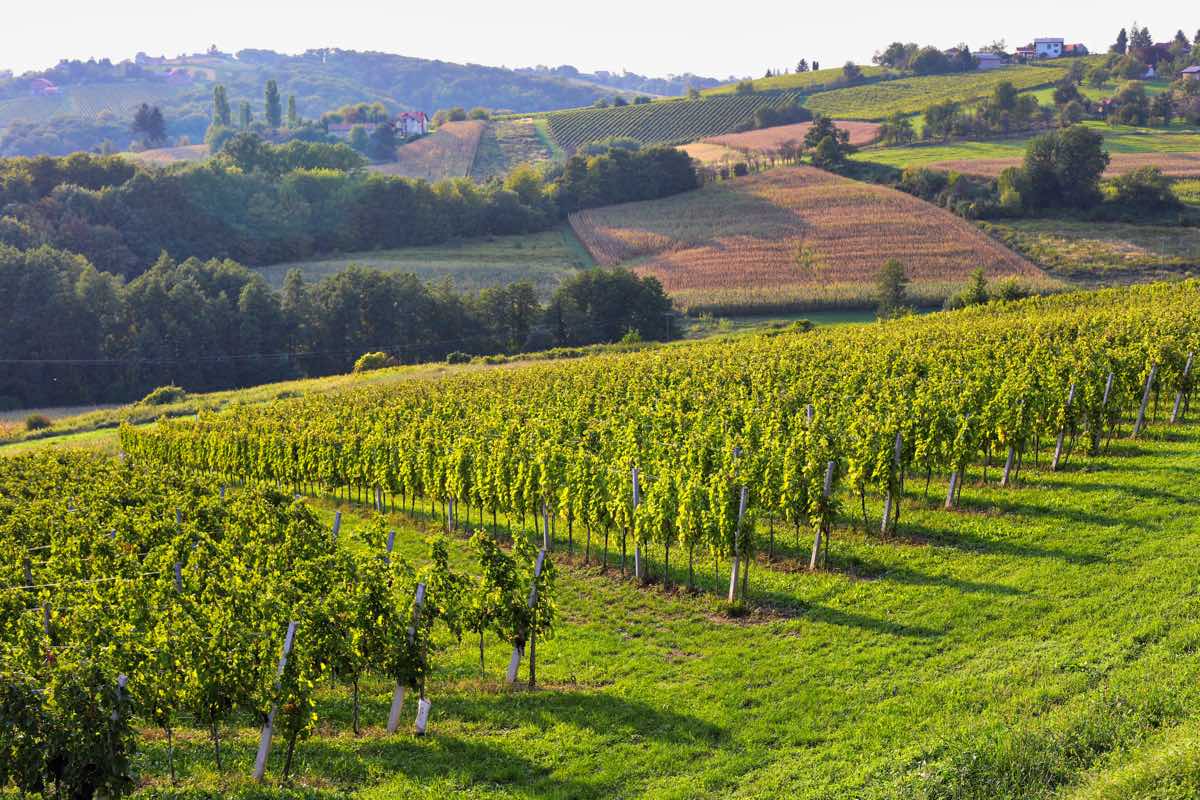
The setting for the 2018 IAU 100k World Championships, outside the village of Sveti Martin na Muri in northern Croatia. All photos: iRunFar/Bryon Powell
Support iRunFar
 Who in the world brings you exhaustive coverage of races like the IAU 100k World Championships? We do, thanks to readers like you. If you like what we’re doing and you’re not already an iRunFar supporter, please consider becoming a monthly supporter of iRunFar on Patreon. Your support helps make iRunFar happen. Thank you!
Who in the world brings you exhaustive coverage of races like the IAU 100k World Championships? We do, thanks to readers like you. If you like what we’re doing and you’re not already an iRunFar supporter, please consider becoming a monthly supporter of iRunFar on Patreon. Your support helps make iRunFar happen. Thank you!
2018 IAU 100k World Championships Men’s Race
Individual Race
Beforehand, we knew both South Africa and Japan were the country favorites, and the groups from which individual medalists were likely to emerge. We also expected runners from these countries to push the pace. Turns out, only some of this happened. Early race, it was runners from neither of these countries who were actually leading: insert the names of the USA’s Geoff Burns (pre-race interview) and Great Britain’s Lee Grantham here. While Lee Grantham would fade early and ultimately drop, Geoff Burns maintained a pace-setting role until after the 40km point, saying after the race that he thought the men had gone out slow and that someone should keep the pace honest. When the passel of men from South Africa and Japan finally surged hard somewhere around midway, Geoff relinquished the pace-setting and settled in for the rest of the ride.
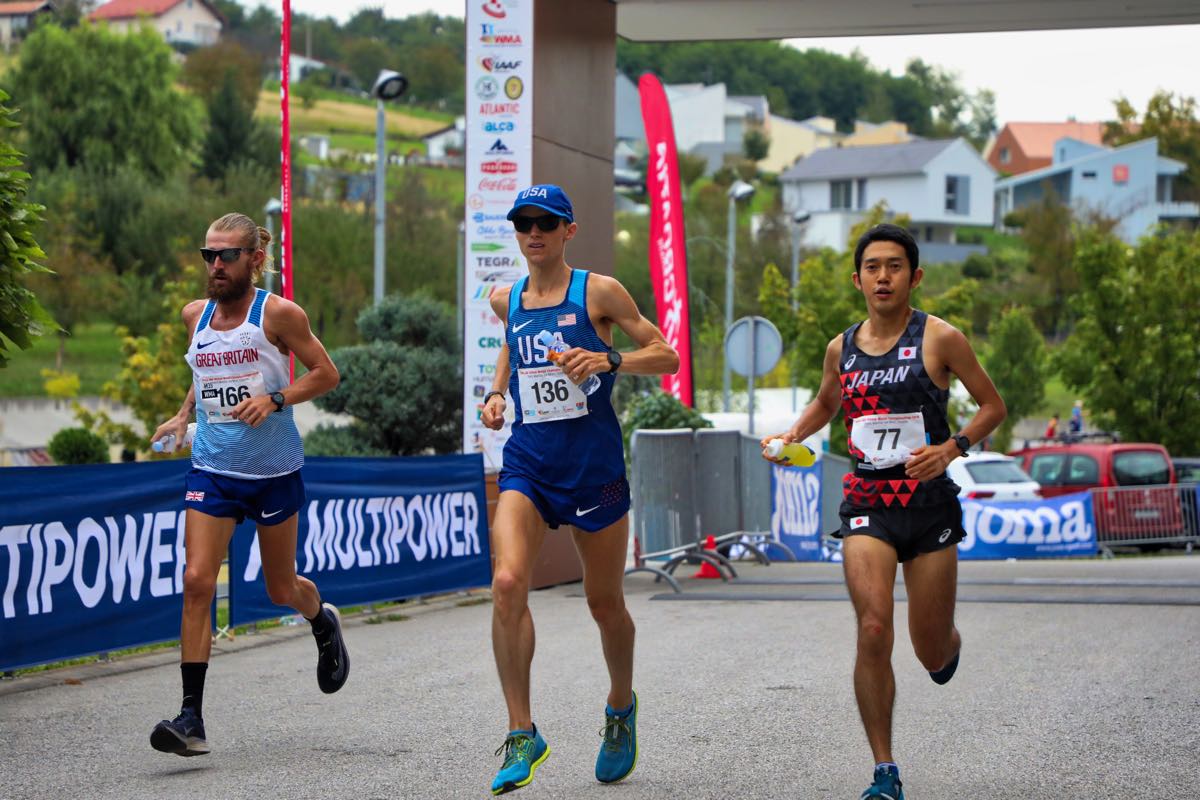
Great Britain’s Lee Grantham, the USA’s Geoff Burns, and Japan’s Takehiko Gyoba leading the 2018 IAU 100k World Championships early on.
Around the 60km mark is where the race really started to change and the big group that had been running together started to string out. One of the men’s race favorites, South Africa’s Bongmusa Mthembu (pre-race and post-race interviews) took the lead and left the main group along with both Takehiko Gyoba (post-race interview) and Hideaki Yamauchi (post-race interview), both of Japan. Behind them, it was Japan’s Nao Kazami (pre-race interview) holding in fourth place with Koji Hayasaka, also from Japan, close to now-fifth-place Geoff Burns. South Africa’s Best Ngwenya was chasing with fellow countrymates Thusio Mosiea, Nkosinathi Duma, and Claude Moshiywa. Now, indeed, Japan and South Africa were pushing hard and working with their fellow countrymen.
Around this point in the race, it was easy to identify some men who were still outside the top 10 but looking strong–the runners most likely to move up. These men included Sweden’s Fritjof Fagerlund, Italy’s Giorgio Calcaterra, and Sweden’s Elov Olsson. It was, thus, not long until the South African foursome of Best Ngwenya, Thusio Mosiea, Nkosinathi Duma, and Claude Moshiywa faded and was passed by these very men. Thusio Mosiea held things together the best to finish 14th, Best Ngwenya also finished strong in 16th, Nkosinathi Duma did not finish, and Claude Moshiywa slipped way back to 44th.
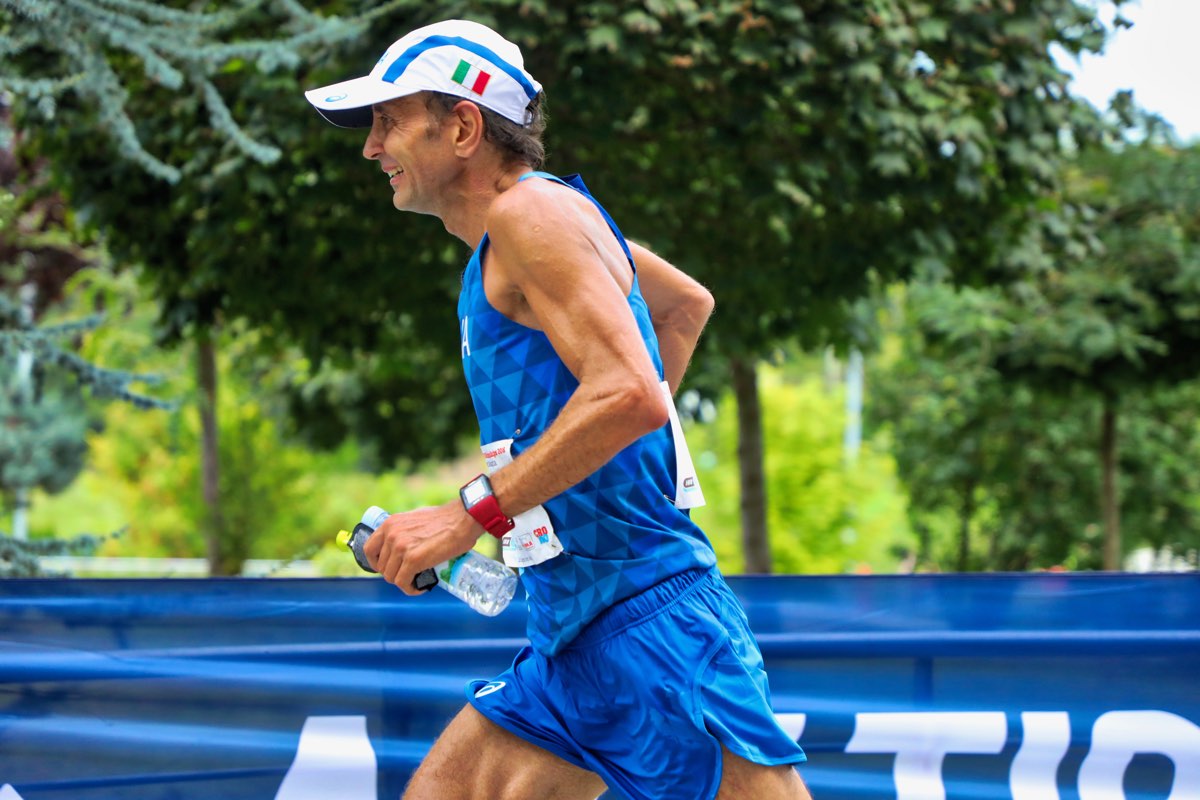
The fact that he’s 46 years old did not prevent Italy’s Giorgio Calcaterra from running to seventh place.
Then-race leader Bongmusa Mthembu’s perfect stride and steady gaze suddenly changed with two laps to go. At the 85km point, he looked for the first time like he was working to maintain pace. And by the 92.5k mark, Japan’s Hideaki Yamauchi, also the event’s defending champion, had surged to take over the lead and Bongmusa faded, in a replay of their 2016 World Championships showdown. Hideaki held his lead for the final lap to become the 2018 IAU 100k World Champion. The race’s dominance by Japan was only starting, though, as Takehiko Gyoba crossed the line in second place, though more than 4.5 minutes behind the winner. Bongmusa Mthembu held on for third, crossing the line less than a minute later.
Koji Hayasaka finished fourth. Geoff Burns took fifth after emerging at the front of a three-person final sprint between he, Nao Kazami, and Giorgio Calcaterra. It was one of the most impressive final efforts we saw all day.
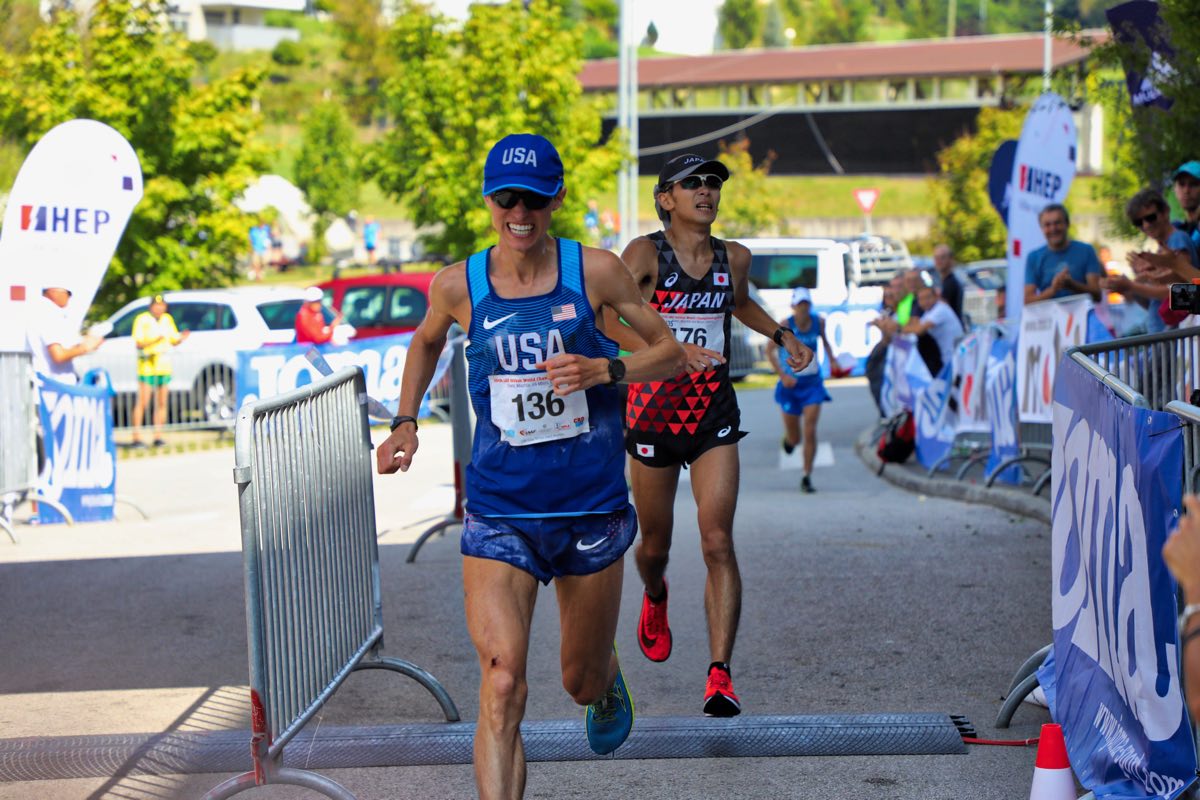
The USA’s Geoff Burns beating Japan’s Nao Kazami to the line in a sprint finish while Italy’s Giorgio Calcaterra also approaches a couple seconds back. These three men took fifth, sixth, and seventh.
The back half of the men’s top 10 was exciting until the finish. Sixth-place Nao Kazami had a fascinating race after being in the lead pack, falling to almost 20th place, and coming back to finish sixth. The ageless Giorgio Calcaterra–he’s actually 46 years old–ran one of the smartest races of the day, being far away from the lead in the early kilometers to finish seventh looking fresh and bright. It was a similar story for Great Britain’s Anthony Clark, who took eighth but waited until the second-to-last lap to move into the top 10–and in doing so he even eluded iRunFar’s two sets of race-coverage eyes until his finish. Fritjof Fagerlund and Elov Olsson took Sweden into the top 10 as they finished in ninth and 10th, respectively.
Team Race
It’s the cumulative time of the top-three finishers of each country that scores the team race. Japan was the team gold medalists by a country mile–or shall we say the Croatian kilometer. Their combined time of 19:37:01 was scored from their teammates finishing in first (Hideaki Yamauchi), second (Takehiko Gyoba), and fourth (Koji Hayasaka) places.
Despite going out hard and fading some late race, the South African men finished firmly with the silver team medal via a combined time of 20:33:49 from third (Bongmusa Mthembu), 14th (Thusio Mosiea), and 16th (Best Ngwenya) place finishers.
Germany was the surprise team medalist, and they took bronze with a cumulative time of 21:02:12 from 12th (Alexander Dautel), 17th (André Collet), and 23rd (Karsten Fischer) place runners.
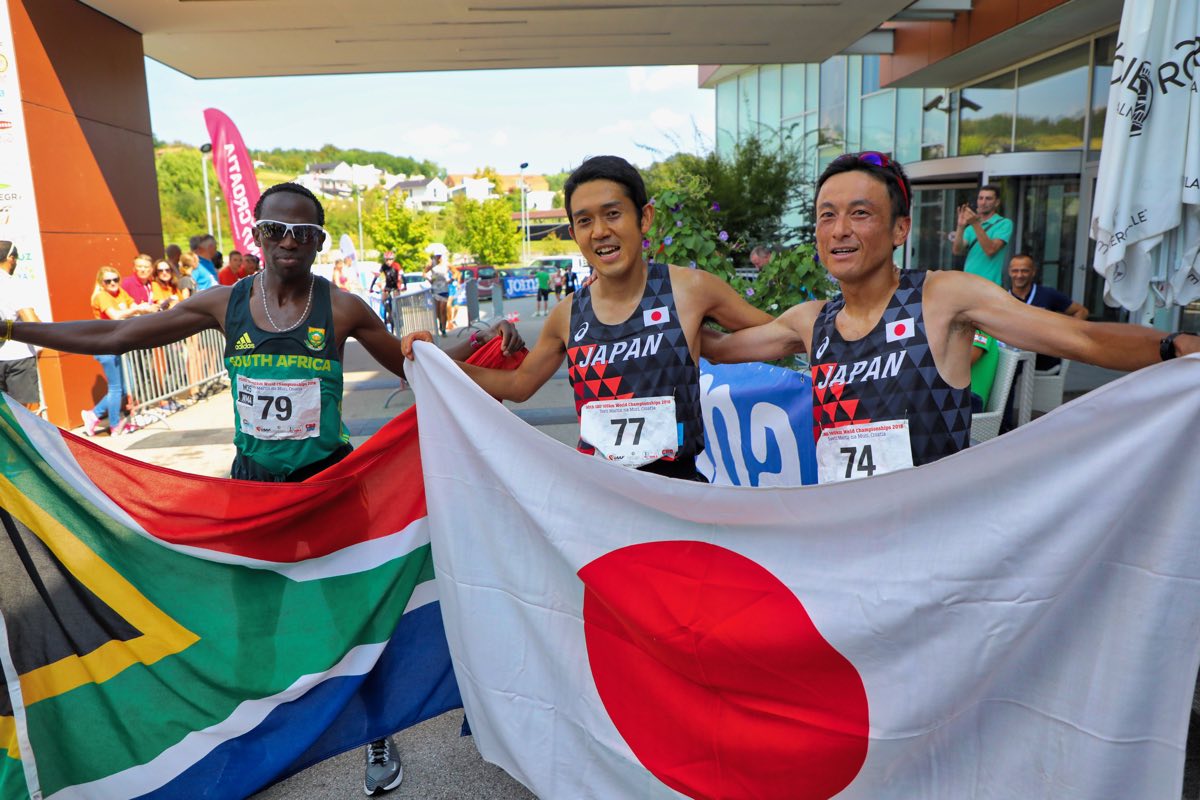
The 2018 IAU 100k World Championships men’s individual podium (l-to-r): 3. Bongmusa Mthembu, 2. Takehiko Gyoba, 1. Hideaki Yamauchi
2018IAU 100k World Championships Men’s Results
Individual Results
- Hideaki Yamauchi (Japan) – 6:28:05 (post-race interview)
- Takehiko Gyoba (Japan) – 6:32:51 (post-race interview)
- Bongmusa Mthembu (South Africa) – 6:33:47 (pre-race and post-race interviews)
- Koji Hayasaka (Japan) – 6:36:05
- Geoff Burns (USA) – 6:42:30 (pre-race interview)
- Nao Kazami (Japan) – 6:42:30 (pre-race interview)
- Giorgio Calcaterra (Italy) – 6:42:35
- Anthony Clark (Great Britain) – 6:43:22
- Fritjof Fagerlund (Sweden) – 6:44:53
- Elov Olsson (Sweden) – 6:46:03
- Wouter Decock (Belgium) – 6:49:39
- Alexander Dautel (Germany) – 6:52:57
- Daniel Hernando (Spain) – 6:53:43
- Thusio Mosiea (South Africa) – 6:59:00
- Didrik Hermansen (Norway) – 7:00:12
- Best Ngwenya (South Africa) – 7:01:02
- André Collet (Germany) – 7:01:07
- Jerome Bellanca (France) – 7:01:21
- Henri Ansio (Finland) – 7:03:27
- Jose Antonio Requejo (Spain) – 7:04:29
Team Results
- Japan – Combined time of 19:37:01 from first, second, and fourth positions
- South Africa – Combined time of 20:33:49 from third, 14th, and 16th positions
- Germany – Combined time of 21:02:12 from 12th, 17th, and 23rd positions
2018 IAU 100k World Championships Women’s Race
Individual Race
On the first out-and-backs, it was a monologue of the Czech Republic’s Radka Churáňová. She set the pace, looking smooth and opening a small gap to her immediate followers, Croatia’s own Nikolina Šustić (pre-race and post-race interviews) and Germany’s Nele Alder-Baerens (pre-race and post-race interviews). All three of them moved independently, however, keeping steady paces and looking at ease with the early kilometers. A bit further back, Finland’s Noora Honkala held fourth position and Japan’s Mai Fujisawa (post-race interview) showed up in the top five. Moving around the back of the top 10 were Luiza Tobar from Brazil, Marija Vrajić from Croatia, Great Britain’s Samantha Amend, Sweden’s Kajsa Berg, and the USA’s Devon Yanko (pre-race interview).
Team Race
Again, it’s the cumulative time of the top-three finishers of each country that scores the team race. The women’s team race wasn’t event close, with Japan an absolute team winner with a 23:03:50 total time earned via their third (Mai Fujisawa), fourth (Mikiko Ota), and fifth (Aiko Kanematsu) place finishers.
The women of South Africa took team silver with a cumulative time of 23:56:44 from runners finishing in seventh (Salome Cooper), 14th (Fikile Mbuthuma), and 19th (Lisa Collet).
The ‘home team,’ Croatia, earned the bronze medal with a cumulative time of 24:13:57 via first (Nikolina Šustić), 18th (Veronika Jurišić), and 46th (Antonija Orlić) places.
2018 IAU 100k World Championships Women’s Results
Individual Results
- Nikolina Šustić (Croatia) – 7:20:34 (pre-race and post-race interviews)
- Nele Alder-Baerens (Germany) – 7:22:41 (pre-race and post-race interviews)
- Mai Fujisawa (Japan) – 7:39:07 (post-race interview)
- Mikiko Ota (Japan) – 7:39:45
- Aiko Kanematsu (Japan) – 7:44:58
- Yuko Kusunose (Japan) – 7:49:33
- Salome Cooper (South Africa) – 7:51:13
- Noora Honkala (Finland) – 7:52:04
- Kajsa Berg (Sweden) – 7:52:39
- Leonie Ton (Netherlands) – 7:54:55
- Caroline Boller (USA) – 7:57:35
- Julie Hamulecki (Canada) – 7:58:11
- Alicia Pérez (Spain) – 7:58:50
- Fikile Mbuthuma (South Africa) – 7:59:17
- Samantha Amend (Great Britain) – 8:01:11
- Emily Torrence (USA) – 8:03:11
- Valeria Sesto (Argentina) – 8:05:39
- Veronika Jurišić (Croatia) – 8:05:57
- Lisa Collett (South Africa) – 8:06:14
- Wioletta Paduszyńska (Poland) – 8:07:54
Team Results
- Japan – Combined time of 23:03:50 from third, fourth, and fifth positions
- South Africa – Combined time of 23:56:44 from seventh, 14th, and 19th positions
- Croatia – Combined time of 24:13:57 from first, 18th, and 46th positions
Coverage Thanks
Thanks to Mauri Pagliacci for his assistance with our race coverage, both in the field and in writing this results article.

